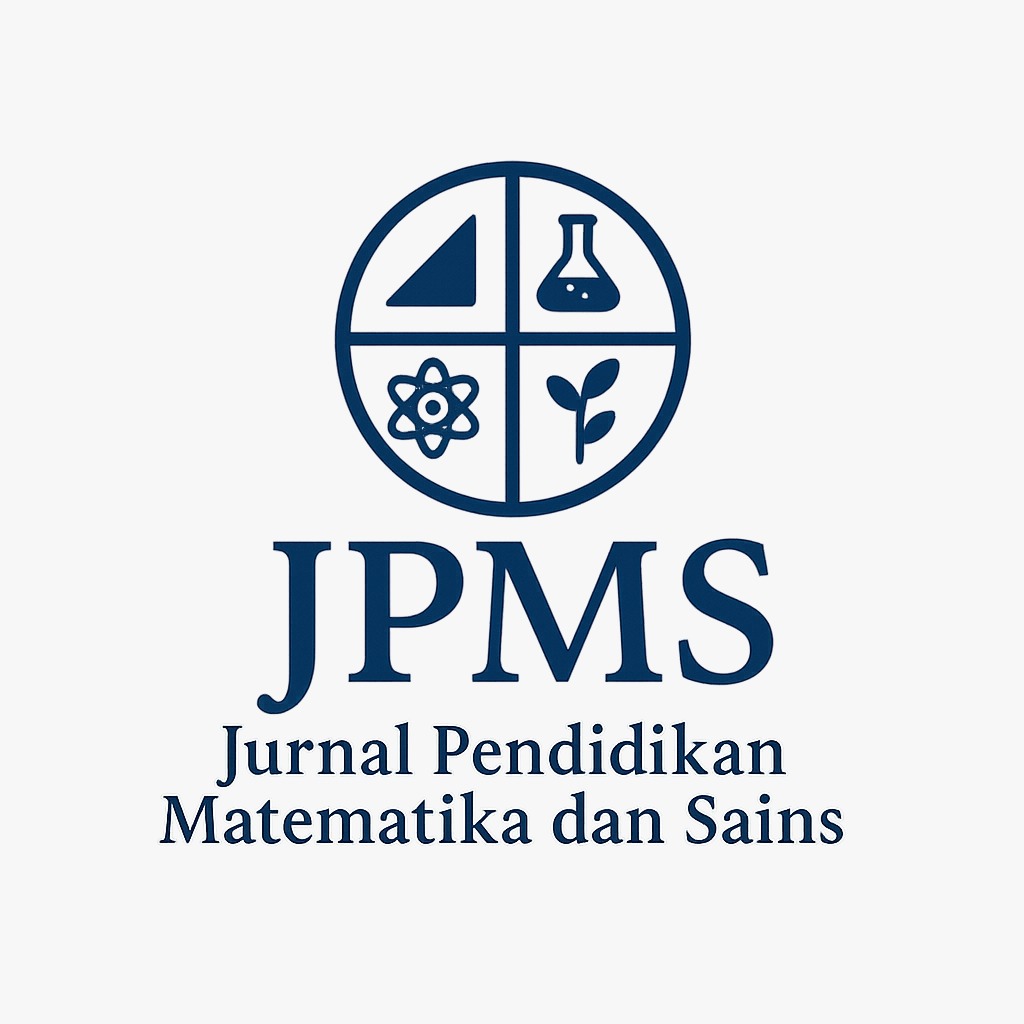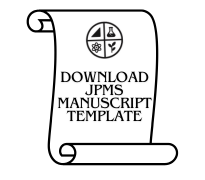Digital Augmented Reality Flipbook Based on Local Wisdom: An Instructional Innovation to Enhance Students' Mathematical Literacy
DOI:
https://doi.org/10.21831/jpms.v14i1.88197Keywords:
Augmented reality, Digital flipbook, Mathematical literacy, Local wisdomAbstract
This research aims to develop and evaluate the effectiveness of a Flipbook Augmented Reality (AR) application based on local wisdom from Lampung in enhancing students' mathematical literacy in geometry topics. The method used is a developmental study with a design research approach, employing the 1993 Tessmer model, which consists of the preliminary, formative evaluation, and prototyping, including three parts: expert review, one-to-one, and small group, followed by the field test stage. The subject of the study was an eighth-grade student at Junior High School in Bandar Lampung. The instruments used were mathematical literacy tests and student response questionnaires. The results of expert validation indicate that the product falls into the excellent category, with a practicality level reaching 83.1%. The results of the binomial test show that more than 70% of students achieved learning mastery. The highest achievement in mathematical literacy was found in the communication indicator (88.15%). The research has proven effective in improving students’ mathematical literacy. Flipbook AR can serve as a contextual learning alternative that integrates technology and local culture to meaningfully reinforce students' understanding of mathematical concepts.
References
Andini, S., Budiyono., & Fitriana, L. (2018). Developing flipbook multimedia: the achievement of informal deductive thinking level. Journal on Mathematics Education, 9(2), 227–238.
Apriza, F., & Rukiah, L. (2023). Analisis kebutuhan flipbook-augmented reality berbasis kearifan lokal. Bioedusains. https://doi.org/10.31539/bioedusains.v6i2.7684
Caridade, C. M. R. (2023). The effect (impact) of project-based learning through augmented reality on higher math classes. Springer Proceedings in Mathematics and Statistics, 414, 113–122. https://doi.org/10.1007/978-3-031-21700-5_12
Dinni, H. N. (2018). HOTS (High Order Thinking Skills) dan kaitannya dengan kemampuan literasi matematika. PRISMA, Prosiding Seminar Nasional Matematika, 1, 170–176.
Emanuele, G., Mitsuhiro, K., & Masatsugu, T. (2003). The internet revolution. Research Papers in Economics.
Estapa, A. T., & Nadolny, L. (2015). The effect of an augmented reality enhanced mathematics lesson on student achievement and motivation. Journal of STEM Education: Innovations and Research, 16(3), 40–48.
Eva, M., Sofia., S., Eko, N., Agung, T., & Prasetya. (2023). Development of augmented reality storybooks based on local wisdom to prepare akm through literacy. International Journal of Research and Review. https://doi.org/10.52403/ijrr.20230790
Faiz, A., Imas, K., & Purwati. (2020). Eksistensi nilai kearifan lokal kaulinandan kakawihan barudak sebagai upaya penanaman nilai jati diri bangsa. Jurnal Education and Development, 8(4).
Fajrie, N., Aryani, V., & Kironoratri, L. (2024). Media belajar digital berbasis kearifan lokal sebagai sumber bacaan dongeng sastra anak. Jurnal Elemntaria Edukasia, 7(1), 2262–2275. https://doi.org/10.31949/jee.v7i1.8123
Harina, Y. (2002). ICT and education in Indonesia. ICT and education in Indonesia.
Harsojo, A. (2013). Membangun karakter berkearifan lokal dalam bingkai pendidikan persekolahan. Jurnal Pelopor Pendidikan, 4(1), 19–28.
Hasanah, M., & Hakim, D. L. (2022). Kemampuan literasi matematis pada soal matematika pisa konten quantity dan konten change and relationship. JURING (Journal for Research in Mathematics Learning, 5(2), 157.
Hasanah, S. N., Effendi, M. M., & Putri, O. R. U. (2020). Pengembangan space geometry flipbook audio visual berbasis literacy digital untuk siswa SMP. AKSIOMA: Jurnal Program Studi Pendidikan Matematika, 9(3), 506. https://doi.org/10.24127/ajpm.v9i3.
Hewi, L., & Shaleh, M. (2020). Refleksi hasil PISA (the programme for international student assesment): upaya perbaikan bertumpu pada pendidikan anak usia dini. Jurnal Golden Age, Universitas Hamzanwadi, 4(1), 30–41. https://doi.org/10.29408/goldenage.v4i01.2018
Hidayat, A., & Mujahiduddien, A. (2017). Pembelajaran bentuk sendi tulang manusia menggunakan konsep augmented reality. Jurnal Siliwangi, 3(1), 204–208.
Hidayat, D. W., Kuswandi, D., & Ulfa, S. (2018). Pembelajaran organisasi makhluk hidup berbasis gamification menggunakan mobile augmented reality. 4(1), 9–14.
Indrawati, F. (2020). Peningkatan kemampuan literasi matematika di era revolusi industri 4.0 improving mathematical literacy skills in the era of the industrial revolution 4.0. Proceeding of Seminar Nasional Sains, 1(1), 382–386.
Maralova Bakyt Omiralievna. (2024). Development and cultivation of mathematical literacy: a pedagogical perspective. Eurasian Science Review, 2(2), 94–99. https://doi.org/10.63034/esr-55
Maseleno, A., Susilowati, T., & Chauhan, R. (2024). Ethnomathematics wat hua lamphong temple. Hipotenusa Journal of Research Mathematics Education (HJRME), 7(2), 79–91.
Mellawaty, M., & Sudirman, S. (2020). Integrating local wisdom forms in augmented reality application: impact attitudes, motivations and understanding of geometry of pre-service mathematics teachers’. International Journal of Interactive Mobile Techonologies, 14(11), 91–106. https://doi.org/10.3991/ijim.v14i11.12183
Noprisa, N., Lestari, F., Hardianti, D., Dwi Desmayanasari, S. A. A., Efendi, D., Rizko, D., & Kurnia, E. (2024). Traditional house of lampung kedatun keagungan: ethnomathematics exploration. Inomatika, 6(1).https://doi.org/10.35438/inomatika.v6i1.417
Nurani, M., Mahfud, M. S., Agustin, R. L., & Kananda, H. V. (2020). Analisis kemampuan literasi matematika siswa SMA ditinjau dari gender. Jurnal Pendidikan Matematika Universitas Lampung, 8(4), 336–347.
Nurjanah, N., Lestari, F., & Asyhara, S. A. (2024). Rumah adat keraton tanjung raya belitang: eksplorasi etnomatematika. LINEAR: Journal of Mathematics Education, 5(2), 143–158. https://doi.org/10.32332/exjdny09
O.E.C.D. (2023). PISA 2022 results (volume I): the state of learning and equity in education. OECD Publishing. https://doi.org/10.1787/53f23881-en
P.I.S.A. (2022). Mathematics framework. In OECD.
Pamenang, P. (2021). Local wisdomin learning as an effort to increase cultural knowledge: students’ perception as prospective teachers. International Journal of Indonesian Education and Teaching, 5(1), 93–101.
Pramono, H. D. (2018). Penerapan teknologi augmented reality pada game pengenalan hewan berdasarkan jenis makanannya berbasis mobile. J-INTECH, 6(01), 166–172.
Prasetiyo, T. K., Setyosari, P., & Sihkabuden, S. P. A. P. R. K. (2018). Media untuk teknik gambar bangunan di sekolah menengah kejuruan (Vol. 4, Issue 1, pp. 37–46).
Purnomo, S., & Dafik. (2015). Analisis respon siswa terhadap soal PISA konten shape and space dengan rasch model. In Jurnal Seminar Nasional Matematika dan Pendidikan Matematika UNY 2015.
R. Y. Endra, D. R. Agustina, and S. C. H. (2017). Positioning manipulate real property pbject on tourist attraction utilize augmented reality. In The 4th International Conference on Engineering and Technology Development (ICETD 2017), 758.
Rafianti, I., Setiani, Y., & Novaliyosi, N. (2018). Profil kemampuan literasi kuantitatif calon guru matematika. JPPM, 11(1), 63–74.
Riska, A., Abdul, A., Hunaifi., R., & Damariswara. (2024). Pengembangan media flipbook digital berbasis kearifan lokal kediri pada materi mencermati tokoh yang terdapat pada cerita fiksi kelas IV sekolah dasar. Social, 3(4), 162–174. https://doi.org/10.51878/social.v3i4.3070
Rizki, L. (2019). Mathematical literacy as the 21st century skill. In Journal of Physics: Conference Series (Vol. 1157, Issue 4). https://doi.org/10.1088/1742-6596/1157/4/042088
Salawati, T., & Indrawati, N. D. (2015). Tahap analisis untuk pengembangan “ASETARO” komik pendidikan kesehatan untuk anak tentang bahaya merokok. Prosiding Seminar Nasional & Internasional.
Sasongko, T. P. M., Dafik, D., & Oktavianingtyas, E. (2016). Pengembangan paket soal model PISA konten space and shape untuk mengetahui level literasi matematika siswa SMP. Jurnal Edukasi, 3(1), 27–32.
Septiyaningrum, S. A., Hardianti, D., & Lestari, F. (2024). Analisis kemampuan literasi matematis terhadap kemampuan menyelesaikan soal cerita matematika SMP. Jurnal Ilmiah Matematika Realistik (JI-MR), 5(2). https://doi.org/10.33365/ji-mr.v5i2.5214
Tessemer, M. (1993). Planning and conducting formative evaluation. Kogan Page Limited.
Wahyudi, A. K. (2014). Pengembangan buku interaktif berbasis augmented reality dengan smartphone android. JNTETI, 3(2).
Downloads
Published
How to Cite
Issue
Section
Citation Check
License

This work is licensed under a Creative Commons Attribution-ShareAlike 4.0 International License.
Jurnal Pendidikan Matematika dan Sains allows readers to read, download, copy, distribute, print, search, or link to its articles' full texts and allows readers to use them for any other lawful purpose. The journal allows the author(s) to hold the copyright without restrictions. Finally, the journal allows the author(s) to retain publishing rights without restrictions
- Authors are allowed to archive their submitted article in an open access repository
- Authors are allowed to archive the final published article in an open access repository with an acknowledgment of its initial publication in this journal

This work is licensed under a Creative Commons Attribution-ShareAlike 4.0 Generic License.





